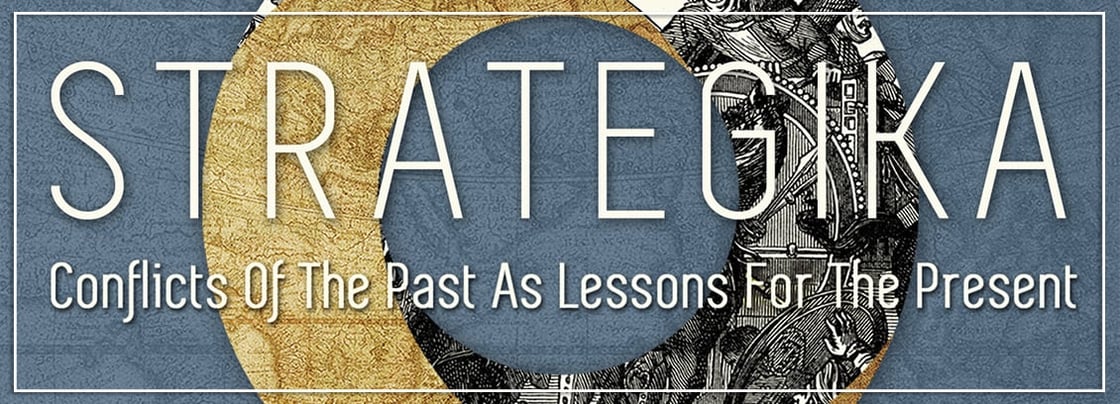In this edition of the Hoover Institution Briefing on Revitalizing History, the Hoover History Lab releases new video versions of its policy briefs addressing global policy challenges. A new book by Joseph Torigian generates a deluge of positive news coverage around the world. And Niall Ferguson discusses the power and methods of the KGB in the Soviet Union, and how that organization continues to influence the path of Russia today.
Featured Analysis

Hoover History Lab Launches New Policy in Brief Series
The Hoover History Lab introduces a new series, Policy in Brief, where Hoover History Lab fellows explore global policy challenges using history as a guide to inform effective solutions. Introduced by Hoover History Lab Director and Senior Fellow Stephen Kotkin, Policy in Brief offers insights on current policy issues and provides possible solutions through a historical lens. The first video in the series features Student Fellow Kate Tully arguing for the need for Europe to take a bigger role in Africa, as a means to counter the coercive powers wielded by China on the continent. In another video, Student Fellow Katharine Sorensen explores how Saudi Arabia has the opportunity to lead Lebanon’s revival by exploiting Hezbollah’s weakened state, to rebuild institutions, and banish Iranian influence.
Other Policy Briefs can be found here.

Global Praise for Book Chronicling Life of Xi Jinping’s Father
A new book by Research Fellow Joseph Torigian is generating headlines across the global press, as international observers seek all the information they can acquire about the motivations of Chinese President Xi Jinping. In The Party’s Interests Come First: The Life of Xi Zhongxun, Father of Xi Jinping, Torigian recounts the struggles of Jinping’s father; from imprisonment under the regime of the Nationalists prior to the 1949 revolution and another bout of banishment at the hands of Mao in the early 1960s. As the first biography of Xi Zhongxun written in English, the book details both the incredible personal suffering endured by Zhongxun, which likely influenced the upbringing and worldview of Xi Jinping, but also the enormous, accumulated power of the Chinese Communist Party.
Torigian spoke about the book at Hoover on June 3, alongside Hoover Library & Archives Director Eric Wakin and Hoover History Lab Director Stephen Kotkin. In the last few months, Torigian’s book has been featured in numerous global news outlets including The Wall Street Journal, The New York Times, The Economist, Foreign Affairs, and BBC Radio 4.
You can watch the discussion here.

At Home with the KGB: A New History of the Soviet Security Service
Stanford Associate Professor of History Amir Weiner joined Senior Fellow Niall Ferguson on May 9, 2025, as part of a discussion of the Hoover Institution Applied History Working Group seminar series, previewing his forthcoming book, At Home with the KGB: A New History of the Soviet Security Service. Weiner examines how the Soviet security service maintained control after Stalin—not through overt violence, but using methods such as psychological pressure, surveillance, and deeply embedded conspiratorial thinking.
The conversation explores how the KGB adapted, shaped leadership transitions, and ultimately failed to prevent the Soviet collapse—offering fresh insights into the Cold War era and the mindset of its most notorious alumnus, Vladimir Putin.
Watch or listen to their conversation here.

Strategika: Total Wars and the Future of the Soldier
Hoover’s Military History and Contemporary Conflict Working Group continues to lead with timely, incisive analysis through its flagship journal, Strategika.
In Issue 98 of Strategika, Chris Gibson, Gordon G. Chang, and Jakub Grygiel ask if the concept of total war has gone extinct in the twenty-first century. In their essays, the three writers explore the relevance of Clausewitz, the idea that the American public and policymakers have not yet realized they are already engaged in conflict with the People’s Republic of China, and what makes a war unwinnable.
Read Issue 98 here.
In the latest issue, Miles Maochun Yu, Andrew Roberts and Soner Cagaptay explore how the modern soldier will respond to technological advances concerning the battlefield. In their essays, the trio examine the impact of technological change on soldiers who may fight in a future US-China confrontation, how soldiers everywhere will adapt to new battlefield technologies, and Turkey’s exploitation and export of drone technology as it seeks a new transactional foreign policy.
Read Issue 99 here.
Highlights

The Hoover History Lab Examines the Uses and Misuses of History
On May 19, 2025, the Hoover History Lab hosted the daylong conference “History and World Order: ‘Lessons’ of the Past for American Statecraft” at the Hoover Institution. Joseph Ledford, a Hoover fellow and assistant director of the Hoover History Lab, organized the conference in collaboration with Daniel Sargent, the Alexander F. and May T. Morrison Professor of American History and American Citizenship at the University of California, Berkeley.
The marquee event convened scholars and practitioners to examine how and why history influences the politics and statecraft of seven nations: the United States, Brazil, China, Indonesia, Israel, North Korea, and Saudi Arabia. The conference also included a special keynote discussion on the uses and misuses of history, covered by C-SPAN, featuring Senior Fellow Philip Zelikow and Drew Erdmann, a partner at McKinsey & Company.
Read more about the conference here.

UnArchived: Modern Technology, Human Warfare
In a video for the UnArchived series, Senior Fellow Barry Strauss urges viewers not to be fooled by the rise of drones, AI, and other autonomous weapons on the modern battlefield. Humans will always be needed there, he says. Advancements are never as significant or transformational as they first appear to be, he says, citing the failure of France’s Maginot Line in World War II as an example. Strauss argues that advancements in military technology may lead to fewer combat soldiers, fewer casualties, and perhaps more effective forms of combat. But there will always be another advancement to counter it.
Watch the video here.

The Hand Behind Unmanned Podcast
The Hoover Institution is proud to announce a new limited podcast series, The Hand Behind Unmanned, which explores the rise and use of autonomous systems in the US military. This timely podcast offers an extension of the profound insights presented in the recently published book The Hand Behind Unmanned: Origins of the US Autonomous Military Arsenal (Oxford University Press). Coauthored by Jacquelyn Schneider, Hargrove Fellow and director of Hoover’s Wargaming and Crisis Simulation Initiative, and Julia Macdonald, research professor at the University of Denver’s Josef Korbel School of International Studies, the book details how critical ideas, individuals, and institutions have shaped the US military’s approach to unmanned and autonomous technologies over the past half century.
Watch or listen to all episodes here.
Library & Archives News

Hoover Archives a “Candy Store Where Everything is Arranged Alphabetically,” says Author who Won Pulitzer Prize
A book on Soviet dissidents detailing the absurdities of Soviet times, which drew heavily on records housed at Hoover’s Library & Archives, has won the 2025 Pulitzer Prize for general nonfiction. Its author, Benjamin Nathans, professor of history at the University of Pennsylvania, says putting together To the Success of Our Hopeless Cause: The Many Lives of the Soviet Dissident Movement became possible once he got access to the treasure trove of Soviet records stored and preserved at Hoover’s Library & Archives. “It wasn’t just like being a kid and walking into a candy store. It was like walking into a candy store where everything is arranged alphabetically,” Nathans said. The Pulitzer Prize Board called the book “a prodigiously researched and revealing history of Soviet dissent, how it was repeatedly put down and came to life again, populated by a sprawling cast of courageous people dedicated to fighting for threatened freedoms and hard-earned rights.”
Read more here.
Fellow Spotlight

Joseph Torigian is a research fellow at the Hoover Institution; an associate professor at the School of International Service at American University in Washington, DC; and a center associate of the Lieberthal-Rogel Center for Chinese Studies at the University of Michigan.
In 2025, he published his second book, The Party’s Interests Come First: The Life of Xi Zhongxun, Father of Xi Jinping, to great international acclaim.
His first book, published in 2022 by Yale University Press, is Prestige, Manipulation, and Coercion: Elite Power Struggles in the Soviet Union and China after Stalin and Mao.





















